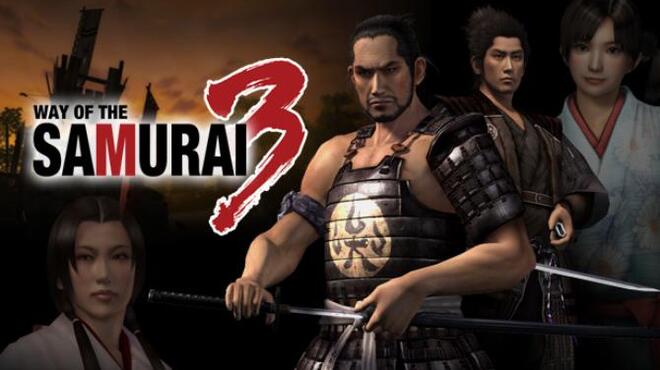

It likely isn’t a coincidence that Jin and Lord Shimura’s eternal debate over tradition vs.

Remember: Despite Ghost of Tsushima being set in ancient Japan, Sucker Punch is an American developer. He represents an older generation who are in power and whose stubbornness and refusal to listen to reason in times of crisis cause them to risk innocent lives in the name of upholding the status quo and protecting archaic notions of right and wrong. Lord Shimura is devoted to tradition to an almost fanatical extent. There’s a generational aspect to this finale that resonates with the current sociopolitical state of the world as well. This is the inevitable impasse that these two warriors, the last samurai of Tsushima, have arrived at. “And you are a slave to it,” Jin retorts. He’s an honorable samurai, and he refuses to compromise.
#Way of the samurai 1 ending code#
What this all boils down to is that Lord Shimura is so unshakably committed to honor and samurai code that he intends to kill his would-be adopted son in the name of it. And because Jin has chosen to use dishonorable tactics to defend Tsushima, he must pay for his transgressions. Jin believes that he’s inspired people to stand up for themselves, but in Lord Shimura’s eyes, there is only one way to lead one’s life: with honor. Why does Lord Shimura fight Jin to the death?Īt the Sakai family cemetery, Lord Shimura reveals to Jin that he’s been tasked by the shogun, who have branded Jin a traitor, to kill him. They were meant to be father and son, but the fact of the matter is, Jin has undermined everything Shimura worked his life to defend and uphold, and what’s worse, he’s now inspired the people of Tsushima to follow suit. He still loves him, but he’s disappointed and mourns what they once had. As we later learn, Lord Shimura is leading Jin to a duel to the death, but as they help the peasant and discuss the repercussions of the manner in which Jin has chosen to fight the Mongols, it’s clear that Shimura harbors no anger toward his nephew. There’s a lot of foreshadowing going on here. Lord Shimura even wishes him well, telling him to avoid Mongols. He tells them he’s headed North to join the Ghost’s army and they help him get his cart back on dry ground. Shortly after Jin and Lord Shimura meet at their old sparring circle in Omi Village, they happen upon a peasant whose cart is stuck in the mud.

What is the significance of the peasant and his cart? All of Jin’s sacrifices to save Tsushima will not be attributed to him or clan Sakai, but to the Ghost. In the context of Jin’s story, Khotun Khan represents what happens when a warrior succumbs completely to the allure of dishonor, or “the way of the Ghost.” When Jin tells the Khan he will be forgotten, he knows that because he’s taken up the ways of the Ghost himself. But what if your enemy refuses to fight fair? Is it worth risking the lives of your people in the name of honor, or is it justifiable to use the art of deception to gain an unfair advantage against an enemy as unscrupulous as the Mongols? It’s virtuous to fight enemies head-on, in a fair fight. Throughout his journey, Jin has struggled with the nature of honor. But I believe Jin’s victory symbolizes something much deeper for him personally. Killing the Khan doesn’t end the invasion - there are still Mongol encampments strewn all over Tsushima. You will be forgotten,” before slicing Khotun’s head off of his gigantic shoulders. When Jin finally defeats Khotun, the dying Mongol utters the words, “Kill me and another will come. Jin fights Khotun one-on-one for a while, but then the Khan retreats to his ship, where Jin must take the Mongol leader down as his armed cronies rain swords, spears, and fire arrows down on the Ghost’s head. Of course, the fight doesn’t wind up being a fair one because Khotun has no honor. In the final battle scene of the main story, Jin and his allies Yuna, Sensei Ishikawa, Norio, Masako, and Kenji storm Khotun Khan and his army at Port Izumi, blowing the unsuspecting Mongols to bits with explosives and slashing what’s left of them to pieces, clearing a path for Jin to finally finish the one-on-one duel he and the Khan had at the beginning of the game. What does killing Khotun Khan really mean for Jin?


 0 kommentar(er)
0 kommentar(er)
